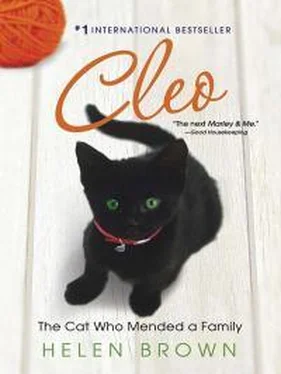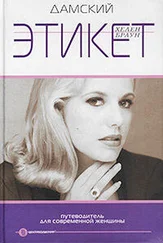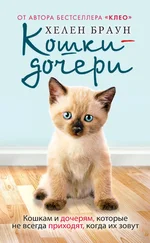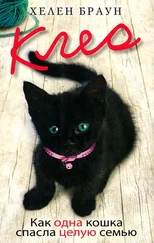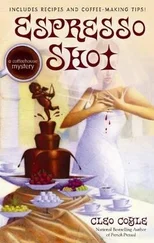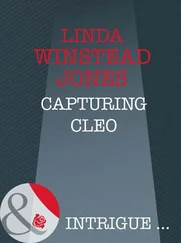Never. I’d never see him again. Not unless I believed in heaven, reincarnation or the boarding school of Doris Stokes. I couldn’t imagine Sam at boarding school, even one run by angels. He’d find out what the rules were and break them straightaway so he could be expelled and sent home.
If any of those other realities, present or future, existed I had no access to them. Nevertheless, I liked to think I’d inherited some of my dad’s connection to the nonphysical world. One of his favorite quotes from Shakespeare was: “There are more things in heaven and earth, Horatio, than are dreamt of in your philosophy.”
Dad often spoke of the near-death experience he’d had as a young man on an operating table. He’d shot up a tunnel of sparkling light to meet some wonderful people at the top. He was overjoyed to be there, but then a voice told him gently, “I’m sorry. You have to go back.”
Hurtling down that tunnel back to the ordinary world was, he said, the biggest disappointment of his life. The experience left him open-minded about ghosts, nature spirits, Ouija boards, any form of spirituality that wasn’t what he called “churchianity.” He’d met too many people who’d claimed to be Christian while demonstrating none of Jesus’ more admirable traits.
Dad certainly was an unusual person. With his delphinium blue eyes he had a habit of looking not so much through people as around them. He often gave the impression of carrying out a conversation simultaneously with the person and their invisible companions.
Some people are happy to die on a golf course. Dad managed his equivalent during the interval of a concert he’d taken Mum and me to when the boys were still small. Having just heard his favorite Bruch violin concerto, he turned to me and said, “God, the acoustics in here are great.” His head suddenly drooped over his chest and he let out a cry of pain. I put my arm on his shoulder and asked if he was okay. He raised his head, gazed at a point above the stage and smiled ecstastically. This time whoever was at the top of the tunnel was saying, “Come on up!” and Dad couldn’t wait to get there.
While it was a shock for us, it was a perfect death for Dad. He’d been ready and willing. Longing for him to return seemed nothing short of selfish. But Sam was another matter. I searched for signs Sam might still be with us. If a curtain trembled there was always a breeze to account for it. On the wall I saw a shadow that resembled Sam’s head, but it was simply the branches of a tree fern waving outside.
The only message we found were the words “Dumb Bell” scribbled in green felt pen in his handwriting high on a bedroom wall that Steve had started wallpapering. Sam would’ve had to climb a ladder to get up there to accomplish his graffiti. It was typical of our son to dispel expectations with a joke. If he was telling us anything it was he thought we were idiots for wallowing in our misery.
Never. Sam would never grow up and savor the ecstasy of falling in love, the joy of seeing his own children born. Forever. He was lost to the world forever, remembered as a golden boy who never had the chance to become a man. The only way to stop the words spinning through my head was to go to the picture window—one that couldn’t be taken to the paint strippers because it was attached to the house—and attack it with a small crimson paint scraper. Never, forever, never , until my wrist ached and my fingers were bleeding and on the brink of bursting into flames. The view through the picture window of city, hills and harbor felt malignant, but it was the frame that needed scraping. With each stroke I stripped another layer of pain. Maybe when the wood was finally bare and smooth my heart would be healed. One time (was it daylight or dark?) Steve led me gently away from the window that had no solution. My pointless, obsessive behavior was disturbing.
On the few occasions I ventured out into the world—the impersonal stage set of shops and offices—I had no qualms burdening strangers with the facts of my recent tragedy. “My son died,” I’d confided to the woman behind the post office counter. “Yes, he was run over three weeks ago. He was only nine.” The woman had turned pale all of a sudden, narrower and taller. She seemed to want to dissolve into the poster advertising a new series of pictorial stamps. Collector’s items, an excellent gift for friends overseas, convenient to post. Glancing nervously towards the door, she’d said she was sorry. Her tone was flat and quiet. Sorry about what? That I’d used her as a receptacle for shocking information or that I’d walked into her post office in the first place?
A fleeting wave of shame had washed over me. What business had I ruining the day of a normal person who was simply trying to earn a living? She’d had every reason to think I was mad, lying, or both.
I told the bank teller, too. His reaction was similar. What was this need to expose my wounds, so horribly raw, to strangers? The satisfaction of witnessing their shock and discomfort had been minimal. I must have had some kind of need to redefine my place in the world, to wear a label for strangers to read and, ultimately, force myself into accepting the unacceptable. Perhaps there was logic in olden-day mourners wearing black for a year. It would be a signal that the wearer was at best unstable.
While I resented roosting at home to be the target of compassionate visitors, I was in no shape for the outside world, either. Walking down the main street searching for new clothes for our surviving son, children’s designer clothes of a quality so fine he’d be protected and sheltered forever , I became suddenly lost and disoriented. Awash in a tide of faces, all of them unfamiliar and disengaged, I fought an urge to cry out. Glossy shop windows leaned forward, threatening to crush me on the pavement. My knees weakened. An acquaintance spotted me and guided me back to the car. Humiliated by my need, I thanked her and sent her away.
Gulping breaths in front of the steering wheel, I knew exactly how I must’ve looked. A human skull with hairs protruding from its scalp. Glancing in the rearview mirror, I was astonished to see a twenty-eight-year-old woman, unaccountably young, with red eyes.
We tried to resume normal life, whatever that was. A couple of weeks after the funeral, wearied from my weeping and yelling, on top of the burden of his own secret grief, Steve packed his bag and headed off like a sleepwalker for a week at sea. I hoped he might find serenity in the routines and order of shipboard life.
A few days later I heard the knocker pound against the front door. Sheltering in the shadows at the end of the hallway, I contemplated the figure behind the frosted-glass panel. While the silhouette appeared feminine, its shape wasn’t familiar. It seemed tall for a woman, the hair short and shaggy.
Rob glanced up from the kitchen table, where he was building a space station with his new Lego set. In past weeks he’d been showered with toys and clothes, all blindingly bright in their shiny wrapping. Rata, once a reliable guard dog, maintained her prostrate position in the doorway of the boys’ old bedroom and pricked an ear. Ever since the accident she’d been immobile, inconsolable, and would barely lift her head. Whenever anyone tried to comfort her, she rolled a mournful eye.
“Let’s not answer it,” I said. “They’ll go away in a minute.”
Another visitor was the last thing we needed. Exhausted and numb to the core, I wasn’t capable of conversation. The story would have to be told again . He—or she—would gaze at me with whirlpool eyes while I explained how our two beloved sons went down the road and only one came home. Retelling the story, reciting it like plainsong in an empty cathedral, wearied me. I didn’t want their tears, was tired of their cancer-ward voices.
Читать дальше
